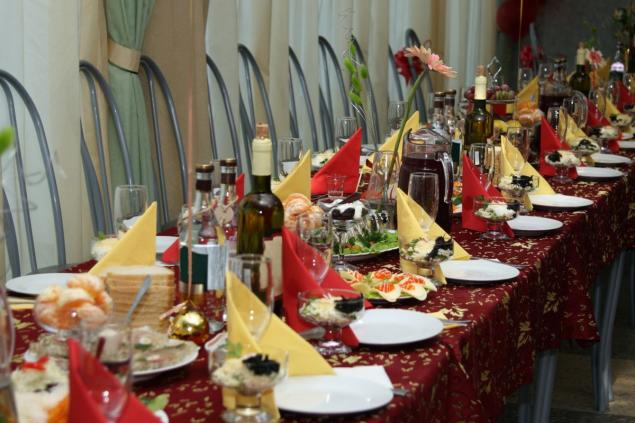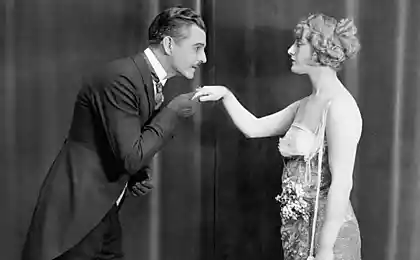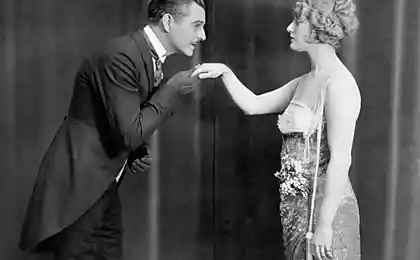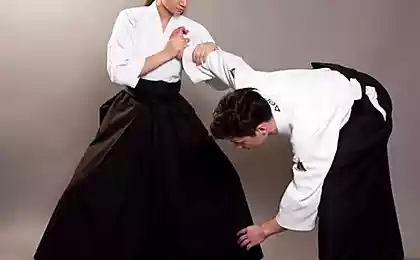223
Why a well-mannered person will not ask for supplements at the table, even if he is hungry
It is very noticeable if the person received parenting. But it also happens that he is a wonderful person in himself, but he does not know some rules. Therefore, people mistakenly perceive him as an ignorant. Can this be fixed?
Today's edition. "Site" He will tell you about harmless habits that you should not have, because they spoil the impression even of a well-bred person. And breaking etiquette, the dearest gentleman may not even suspect it.

And although the basic rules of etiquette today are known to almost everyone, but knowledge of only elementary norms is scarce. Therefore, you should learn more about good manners and instill them in yourself. In this way, we will feel comfortable in any situation and will not cause inconvenience to others.
Many do not pay attention to etiquette, because they perceive these norms as superfluous. But good manners are not to complicate life, but to simplify it. There is nothing wrong with knowing the rules of etiquette and following them.
Today's edition. "Site" He will tell you about harmless habits that you should not have, because they spoil the impression even of a well-bred person. And breaking etiquette, the dearest gentleman may not even suspect it.

And although the basic rules of etiquette today are known to almost everyone, but knowledge of only elementary norms is scarce. Therefore, you should learn more about good manners and instill them in yourself. In this way, we will feel comfortable in any situation and will not cause inconvenience to others.
- Backpack and public transport
Today, backpacks are worn not only by schoolchildren, but also quite adult men and women. Wear it, and forget to take off at the entrance to public transport. Although even a small backpack takes up a lot of space and creates inconvenience for other passengers. On the other hand, the content can also be removed. Therefore, it is worth remembering the rules of good manners and removing the backpack before you find yourself inside the bus or tram.
- Umbrella drying
Of course, the umbrella will dry much faster, but how much space does it take? It is not surprising that according to the rules of etiquette, it is recommended to dry the umbrella in a compact, semi-closed position. To do this, first shake the umbrella before entering the room, and then hang it on the hanger. Just try not to wet the other guests' clothes. - Phone conversations
It seems that a well-mannered person is standing next to him, but suddenly the phone rings, he answers, and you quickly understand what is what. Loud conversations on the phone, when a person is on public transport or standing in line, speak eloquently about his upbringing. After all, it is not worth dedicating everyone present to their personal affairs. It is also disrespectful to anyone who has to listen to you.
- Reception of guests
The rules of etiquette are attentive even to the location of guests at a large table. Therefore, if it is important to remain not only hospitable, but also properly educated hosts, then you should not seat close relatives (for example, husband and wife). After all, the meaning of any event is that those present get acquainted at the table, communicate and establish new connections. If you put all close companies, then they will communicate with each of their already familiar group. - Table conduct
Etiquette is demanding of guests as well. For example, it is considered impolite to ask for supplements, even if you liked a particular dish. And note that the dish liked, is not prohibited. We can only hope that the owners will guess to offer another portion. It is not customary to start a meal, if not all guests have already brought food. This is considered disrespectful to those present. And this rule is relevant for home gatherings, and for a visit to a restaurant or cafe.
- Salt and pepper
When asked to pass salt at the table, it is necessary to transfer not only salt shaker, but also pepper. It is believed that these spices are inseparable, and therefore on the table they should always be together. If you need salt from an open salt shaker, then you need to take it either with a special spoon or with a clean knife. But if a person received a bad upbringing, then taking a pinch of salt with his fingers is not a problem for him.
- Drinking tea
Even such a simple event also needs some rules. For example, etiquette prohibits blowing on hot tea in an attempt to cool it. By the way, this should not be done with any other treat. It is considered correct to wait until the dish itself cools to the desired temperature. There's no rush. - Reception of compliments
You also need to be able to accept praise correctly. Educated people are able not only to thank and praise others, but also know how to accept gratitude and compliments. Saying a laconic “Thank you!” to praise is much more worthy and correct than trying to joke or justify yourself. Such a person will simply show off his bad manners and put the other person in an uncomfortable position. Don't do that!
Many do not pay attention to etiquette, because they perceive these norms as superfluous. But good manners are not to complicate life, but to simplify it. There is nothing wrong with knowing the rules of etiquette and following them.
Where is the soul mate of the one who sees two cats in the picture?
Which of the zodiac signs is the hardest to love




























